
There’s no doubt that ginger is important. It’s been used since ancient times and even carried across oceans by traders. Part of ginger’s popularity comes from its use as a spice, as it provides a distinct flavor to meals. It’s even had religious significance over the years.
However, ginger is also famous for its potential health benefits. That’s why today, we’re asking the question: Is ginger good for you?
Given ginger’s current reputation, the answer seems overwhelmingly obvious. Of course ginger is good for you, right? Just like any other spice, it’s a concentrated source of plant-based compounds and offers some nutrients too. While those claims are true, there are other things we need to think about as well, including the side effects of too much ginger.
Thankfully, ginger has been used for a long time. It also features heavily in Indian cuisine, so it’s clearly delicious and safe, as long as you don’t go overboard with the spice.
Is Ginger Good For You?
- What Is Ginger?
- Benefits Of Ginger
- The Risks Of Ginger
- How Much Ginger Should You Use?
- How Do You Increase Your Ginger Intake?
- Final Thoughts
What Is Ginger?
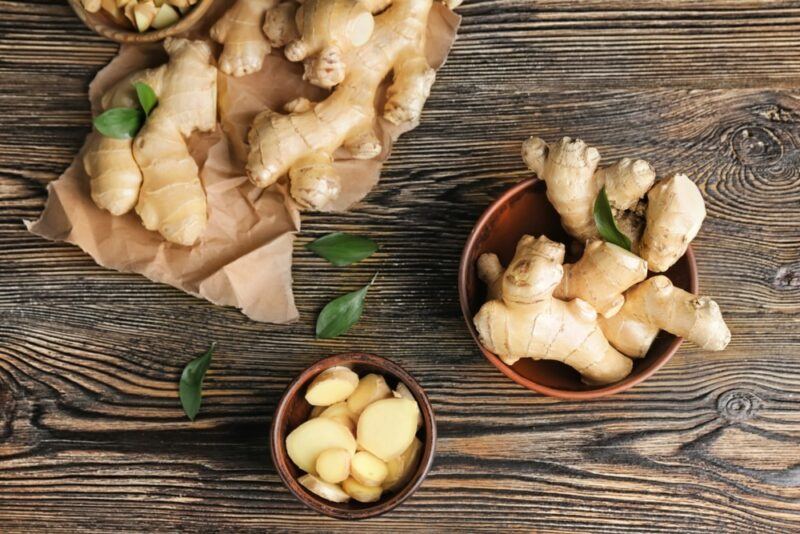
Ginger is instantly familiar as an ingredient that many of us use in our cooking. It provides a distinct flavor that’s somewhat spicy and biting, without being too strong. Interestingly though, there’s plenty of debate about whether to call ginger an herb, a spice, or something else.
The term spice is the most common, as we do use ginger like we do other spices. And honestly, this is good enough. You can call ginger an herb or a root instead if you prefer; the health effects are the same regardless.
In practice, ginger is actually the root or rhizome of the ginger plant (Zingiber officinale). You can buy dried ginger powder and use this directly in your cooking or look for the whole root. There are other options too, like fermented ginger, candied ginger, and ginger supplements.
Fresh ginger root can be a little difficult to work with and has a slightly different flavor than the powdered stuff. However, fresh is always best. You might even see more benefits from fresh ginger than from powdered versions.
Did you know that there are many species in the ginger family, not just one? Many of them have beautiful aromatic flowers, so they’re often grown for their appearance, rather than for ginger root.
Benefits Of Ginger
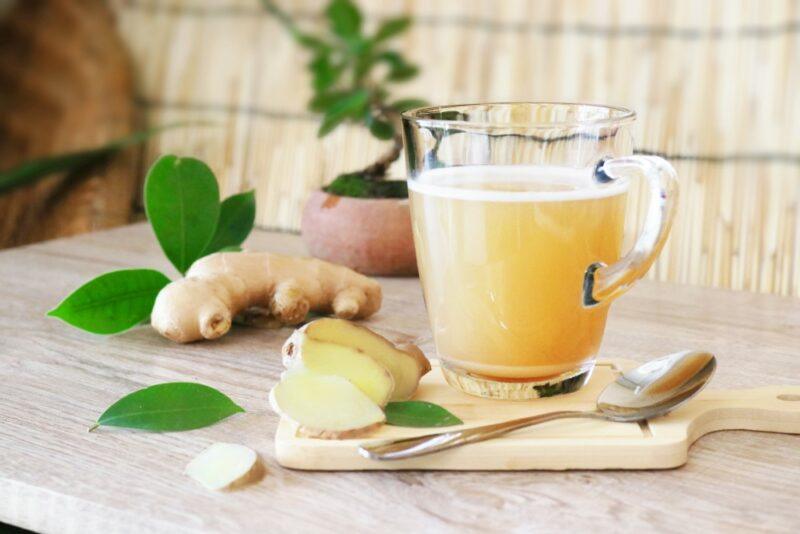
Ginger is well-known for its potential health effects. Many of these come from a single compound – gingerol. This compound is the main reason for the pungent and somewhat spicy flavor that you get with ginger (which should mean that a stronger ginger flavor leads to more health benefits).
May Decrease Nausea
Ginger decreases nausea, making you feel less sick. You must have heard that before. It’s easily the most common health claim made about ginger.
You can also find plenty of ginger-related products designed specifically to help with nausea, including ginger chews, candies, and tablets.
The anti-nausea effects of ginger seem stronger in some situations than others. For example, studies have shown promise for ginger when treating motion sickness, for pregnancy-related nausea, and for nausea following chemotherapy. There’s less evidence for ginger in other areas.
There’s also little evidence that ginger can help with the symptoms of acid reflux.
Ginger isn’t generally as powerful as anti-nausea medications, but it is more natural, which could make it more appealing. Plus, you can often use ginger at the same time as anti-nausea medications (just make sure to check with your doctor first).
Also remember that such health benefits are never universal. Some people find that ginger has a dramatic effect on their nausea, while others see little impact at all.
It’s important to watch the amount of ginger you consume here, as too much ginger may make your stomach more upset, rather than helping with your nausea.
Is An Antioxidant And Fights Inflammation
Ginger has been linked to both antioxidant and anti-inflammatory properties. These are both very important roles, as high levels of oxidative stress or inflammation can be damaging, increasing our risk of disease.
Some theories even suggest that the prevalence of diseases these days is linked, in part, to all the inflammatory foods that we’re eating. Reling more heavily on anti-inflammatory ingredients like ginger and less on processed foods may improve health for many people.
Consuming more anti-inflammatory foods can also help to decrease pain, particularly if you deal with arthritis or a related condition. For some people, this effect alone is a reason to use ginger regularly.
Helps Regulate Blood Sugar Levels
Ginger can also help to decrease fasting blood sugar levels. This is a powerful effect for anyone with diabetes, as it helps to keep your blood sugar levels under control. The effect also means that ginger could potentially reduce the risk of diabetes.
The Risks Of Ginger

Ginger has featured in human diets for a long time, but this doesn’t mean that it’s always a good idea. As with any ingredient or food, there are complications to consider, such as interactions with medications and increased risk when the dose is high.
While issues with ginger aren’t common, it’s always important to watch how your body responds. Such responses can help to guide you, helping you to work out the ideal amount of ginger for your needs.
There Are Medication Interactions
Ginger is thought to slow blood clotting, which means it can interact with medications that have a similar effect, decreasing blood clotting still further. Such interactions increase the risk of bruising and bleeding, and may even put people at risk.
There are also some minor interactions between ginger and medications for diabetes and those for high blood pressure.
These interactions don’t mean you need to avoid ginger or even reduce your intake. They simply mean that you need to talk to your doctor and make sure that your medication dose takes your ginger intake into account.
Ginger Side Effects
Side effects from small amounts of ginger are rare. Most people can use ginger in cooking and hot drinks without any problems at all.
However, side effects become more common as your ginger intake increases, including issues like heartburn, gas, and an upset stomach. You might find that ginger irritates your mouth as well.
The best way around the side effects is to start slowly. Give your body time to adjust to the ginger, rather than jumping straight to a large dose. You could also try waiting the side effects out, to see whether they decrease with regular ginger intake.
While the side effects of ginger aren’t severe, getting them regularly could be a sign that you need to be consuming less ginger.
Be particularly cautious if you have an underlying health condition, like diabetes, a bleeding disorder, ulcers, or intestinal problems. Such issues can increase your risk of problems from ginger.
It Can Increase Bleeding
Ginger’s impact on blood clotting isn’t dramatic, so it shouldn’t be an issue for most people. However, anyone with a bleeding disorder needs to be very careful with ginger, as the spice may make their symptoms worse.
This is particularly true if you’re using large amounts of ginger every day or are taking a ginger supplement.
Your Blood Sugar Levels Might Drop Too Much
Remember how we said that ginger can help to lower your blood sugar? While that’s a useful effect, there’s also the risk that your blood sugar levels drop down too much.
Such decreases in blood sugar shouldn’t be a problem most of the time, even if you have diabetes. However, it’s important to be cautious if you’re using large doses of ginger regularly.
How Much Ginger Should You Use?
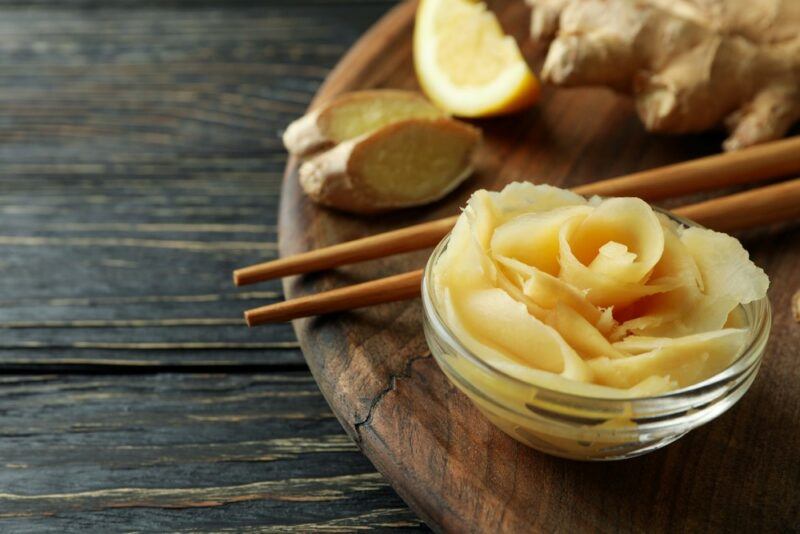
Current research suggests that ginger is safe when used in food quantities, even for people who are pregnant or breastfeeding. However, higher doses can be problematic. For example, WebMD suggests that taking more than 5 grams of ginger per day increases the risk of side effects.
Some recommendations suggest keeping your dose lower, perhaps no more than 3 or 4 grams of ginger each day. This should be enough to provide benefits, while lowering your risk of any serious side effects.
How Do You Increase Your Ginger Intake?
It’s easy enough to get some ginger in your diet by using it as an ingredient when you cook. But, what if you’re trying to increase your intake? This is where things get a little tricky, as ginger has such a distinct flavor.
To make things simple, why not use ginger in your hot drinks? There are countless ways to do so and most allow you to use other healthy ingredients at the same time.
You could also turn to candied ginger products or perhaps ginger chews. Ones that are made from real ginger should offer some of the benefits that come with ginger. Of course, you also have a decent amount of sugar to contend with. You could also try ginger shots.
Realistically, any sugar-containing ginger drink or food should be used with caution. Increasing your ginger intake won’t provide that many benefits if you’re consuming more sugar at the same time.
What About Ginger Supplements?
Ginger supplements seem like an easy way to increase ginger intake. You’re getting all the healthy compounds from ginger in a convenient form. There are plenty of reasons to do so – especially if you don’t like the taste of ginger.
However, you should always be cautious with supplements, as you can’t be certain about what you’re consuming.
Part of the problem is that supplements are regulated like food. This means that companies don’t need to prove that their products are effective or safe before they’re put on the market. There’s often no external testing either, so you have little guarantee that the product label matches what’s actually inside the supplement.
To get around this issue, you need to choose your supplements carefully. Look for reliable brands, ideally ones that have been tested by a third party.
The site Consumer Lab can be a useful place to begin, as they regularly test different supplements to find out which ones actually live up to the company’s claims. Annoyingly, Consumer Lab does charge for many of their reports, but the information may still be worth the price.
Pay attention to any side effects as well. It’s probably not worth sticking with a supplement if it makes you feel sick. You’ll often do better by trying another one, until you find a reliable brand that offers benefits.
While supplements have their place, they’re best seen as a last resort. You’re likely to get many more benefits by using fresh ginger in your meals and hot drinks. Besides, you know exactly what you’re getting with fresh ginger.
Is Ginger Beer Useful?
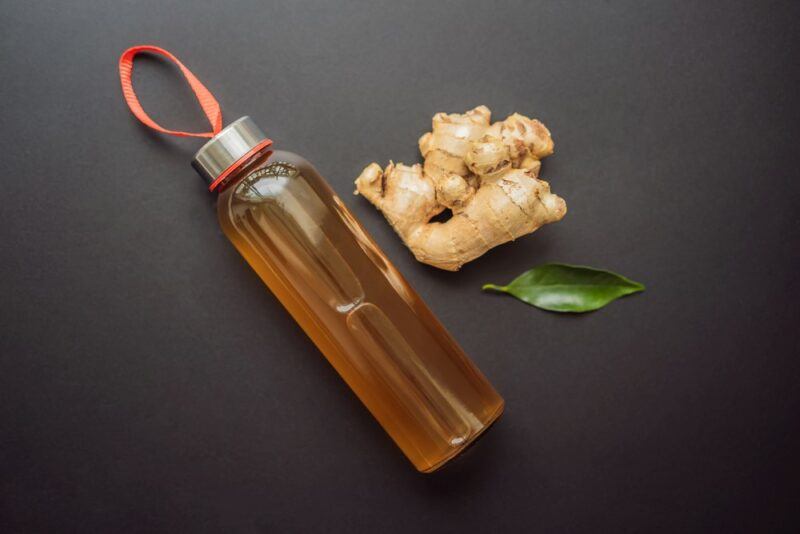
Ginger beer is sometimes promoted as offering many of the same benefits as ginger, such as decreasing inflammation and helping to lower nausea. The logic here is easy to see, as ginger beer is easily accessible and contains ginger.
Right?
Well, not always. Many ginger beer (and ginger ale) products don’t use ginger itself, as they rely on artificial flavors instead.
Even if you do find a brand that uses real ginger, there’s no knowing how much ginger is in there or how much processing the product has been through. Don’t forget about the sugar either. There’s often a decent amount of sugar in the drink, sometimes even more than you find in Coca-Cola.
If you’re going to drink ginger beer, look for a brand that keeps the sugar content low and uses ginger root. Better yet, why not make fermented ginger beer yourself? This way you can avoid additives and get all the potential benefits.
That being said, even homemade ginger beer may contain a decent amount of sugar. As such, it’s best to see the drink as a treat, rather than something to promote your health.
Final Thoughts
It’s easy to get on a bit of a bandwagon with spices like ginger and think that they’re going to change your health overnight. You’ll even see ginger called a superfood from time to time.
Such claims are why some people try to consume a teaspoon or more of ginger every single day.
We’ve talked about many potential benefits already, including the potential to decrease disease risk, to fight nausea, and lower inflammation. But, like other foods and spices, ginger is far from a cure-all.
You could eat ginger every day and it probably won’t have a dramatic impact on your health. You might not even see any benefits at all if you’re already consuming plenty of antioxidant-rich foods.
Instead of seeing ginger as a superfood or as being powerful, it’s better to look at it as one part of a healthy diet. In this context, ginger can help support your wellbeing and shouldn’t cause harm.
Frequently Asked Questions
Is Ginger Good For Acid Reflux?
Ginger is famously used for reducing nausea, so it’s sometimes used for related challenges – like acid reflux. While some people see a positive effect, there’s no scientific evidence to support this use.
In fact, ginger could even increase acid reflux symptoms for some people. This makes it a spice to be cautious with. Try starting with small amounts and increasing the quantity over time to see what the effects are.
Is Ginger Spicy?
Ginger is surprisingly spicy, with a strong aroma and peppery flavor. The spiciness comes from a compound called gingerol, which is also responsible for some of the benefits of ginger.
The spiciness is stronger in fresh ginger than in powdered ginger. So, you can choose the powdered version if you want a mild effect and fresh ginger if you want a stronger one.
Is Ginger Good For High Blood Pressure?
Ginger is associated with decreased blood pressure, partly by naturally blocking calcium channels. This effect is why ginger may have interactions with blood pressure medications.
However, the blood pressure decrease has mostly been seen with supplements. You might not see it at all if you just use ginger as an ingredient. The effect could also vary between supplements, depending on their quality and formulation.
How Long Is Ginger Good For?
A fresh and unpeeled ginger root can last a month, or even more, if you keep it in the fridge. Peeling ginger decreases its lifespan, giving you around two or three weeks.
Ground ginger is different story entirely. Keep it in a cool dry place in an airtight container and it should last you at least a few years. But, it’s best to use it within the first six months or so, as the potency decreases over time.
What Does Ginger Taste Like?
Ginger has a distinctive flavor that makes it difficult to describe. However, there is a distinct pungency to the flavor profile, along with peppery notes. There’s mild sweetness too, although this can be difficult to notice amidst the spice.
The flavor varies depending on the type of ginger. Fresh mature ginger tends to be the most intense, while young ginger is much more mellow. Powdered ginger also lacks some of the pungency of the fresh spice, especially if it has been sitting around for a while.





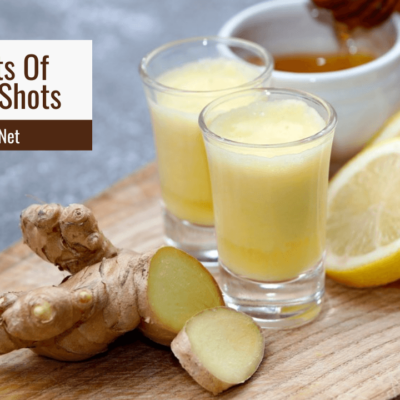



 Is Grapefruit Good For You?
Is Grapefruit Good For You?
Leave a Reply